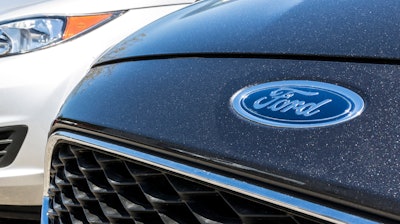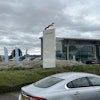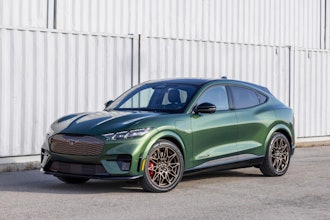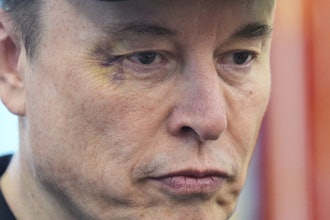
Ford CEO Jim Hackett says he's hoping that trade talks now marked by threats of tariffs against imported vehicles result in a framework that brings balance and stability.
The chief executive of the country's No. 2 automaker said Tuesday that businesses want equilibrium on tariffs. He expressed confidence that President Donald Trump is working hard on that as his administration negotiates trade deals.
Trump has threatened to slap tariffs on imported autos and parts, singling out China, Europe and recently Mexico. Auto industry experts say such tariffs, especially with Mexico, would cause havoc in the industry and raise auto prices because all vehicles built in the U.S. have parts imported from other countries.
The Ford CEO told the Detroit Economic Club that trade with the U.S. is one-sided and needs to be modernized. He expects to see the matter resolved this year.
"The design had not fallen in line with the way the world really has evolved," Hackett said of international trade.
Hackett also said Ford will be ready for the next recession as it restructures to make its business more fit. The company is currently shifting away from sedans in the U.S., closing international factories and cutting thousands of white-collar jobs.
"Ford will be ready for the recession," he said, speaking of a company that narrowly avoided bankruptcy by borrowing billions to prepare for the last recession a decade ago.
Ford, he said, will use vehicles connected to the internet to resolve conflicting information about when to change the oil. Currently, Hackett said, Ford owners get windshield stickers, dashboard lights and owners' manual instructions on when to change oil, all of which conflict.
The company is working to change that to one dashboard light that measures oil change intervals based not just on miles, but on how hard people drive their vehicles. The car will be able to schedule oil change appointments with dealers, he said.






















